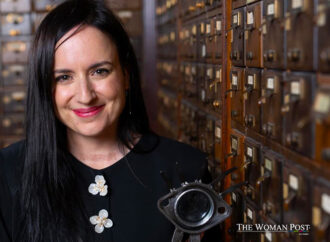The Woman Post cherry-picked Sylvia Plath as the woman who kept up the fight for gender equality and equity with her works.
Recently a report called “Artificial Intelligence (AI) Study Finds That Men Are Represented Four Times More Than Women in Literature” by Maya Abu Zahra and published by researchers at USC’s Viterbi School of Engineering revealed that they use Artificial Intelligence technologies to conclude that male characters are four times more prevalent in literature than female characters. The report’s findings show that there are large discrepancies between male and female characters, however, measurement methods to identify female representation.
Mayank Kejriwal, research leader at USC’s Institute of Information Sciences, believes that work on gender bias is implicit in her own experience. The experts have access to data containing 3,000 Books in English from Project Gutenberg and seek to mitigate the bias of researchers. In addition, it suggests that Artificial Intelligence tools identify plural words, like them. However, when they do that, they tend to see a more realistic view of society. The leader hopes that the analysis will serve to highlight multidisciplinary research and social issues that can be addressed.
On the other hand, another study called “Reading habits and purchase of Books in Spain – 2021” published by the Federation of Publishers’ Guilds of Spain revealed that 67.9% of the Spanish population reads books of which 64.4% read books for leisure. However, the percentage of women book readers in their leisure time is significantly higher than that of men in all age groups. However, as age increases, the proportion of frequent readers of books in their free time decreases considerably. That is why The Woman Post shows you one of the women who dedicated herself to writing, but there was never a context of equality for this leader and her novels.
La campana de cristal
Many readers consider The Crystal Bell as an early feminist text because later feminism would develop from the 60s. Sylvia Plath suggests in all her works a constant critique of the concept of femininity. Esther Greenwood, the protagonist of the novel, claims her desire to live adventures and exercise her creative, moral, and sexual freedom. In addition, it is an abstraction of the conflict of choosing multiple options. The novel interprets a frustration in society that ignores the requirements of women, for a model of patriarchal thinking.
Lady Lazarus
Lady Lazarus is a poem in which Sylvia Plath reveals sadness, confusion, loneliness, and anger, with an expression of suicidal attempts. The tone is cold, perverse, and threatening. In addition, she suggests that dying is an art that she performs exceptionally well and considers that she achieves perfection by leaving her body, and taking her spirit out of the failure of her body.
The Bell Jar
This is a novel based on Sylvia Plath’s own life. Esther Greenwood, the protagonist of all her novels, is happy because she wins an internship at a New York Fashion Magazine. However, her life begins to lose control, due to depressive problems, including suicide attempts, because society refuses to take women seriously.
Forcefully, this great woman must have been worthy of being awarded for her effort and dedication to her work in a masculine world. These novels manifest their wisdom and the constant struggle for women’s rights, to close the gender gap that patriarchy had created.

























Leave a Comment
Your email address will not be published. Required fields are marked with *